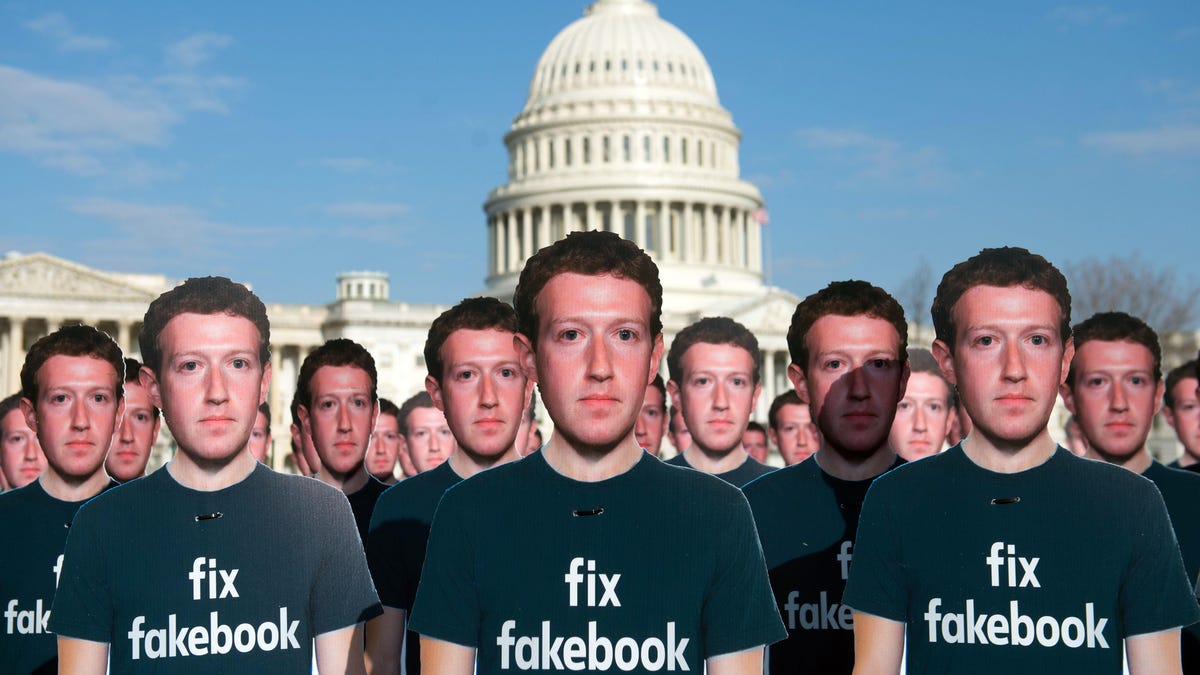Fake news on Twitter, Facebook, YouTube has real victims, says open letter
The letter, signed by people who say they've suffered because of fake news, says companies must do more to combat misinformation.

Advocacy group Avaaz was behind the Mark Zuckerberg cutouts in DC last year.
A group of people who describe themselves as victims of fake news is asking social media companies to do more to battle misinformation.
"Despite what you say in public, your platforms continue to be weaponized to spread lies, hate and fear. So we've come together from different corners of the world to say, enough is enough. You couldn't protect us, but you can protect others," the group said Thursday in an open letter to Facebook CEO Mark Zuckerberg, Twitter CEO Jack Dorsey and YouTube CEO Susan Wojcicki.
The group, which was organized by advocacy group Avaaz, includes a Finnish journalist who received death threats for exposing Russian troll farms, leaders of the persecuted Rohingya in Myanmar, an unvaccinated teenager and the father of a Sandy Hook Elementary School shooting victim. They also met with executives from social media companies this week. The idea, according to Avaaz, is to put faces to the "human cost of the crisis fueled by their platforms."
Avaaz was also responsible for the cutouts of Zuckerberg in DC last year when he testified before Congress. Its related Correct the Record campaign calls on platforms to show corrections from independent fact checkers when someone has shared or seen misinformation.
A Twitter representative said that hearing these people's stories will help inform its decision making. Facebook and YouTube didn't immediately respond to a request for comment.

